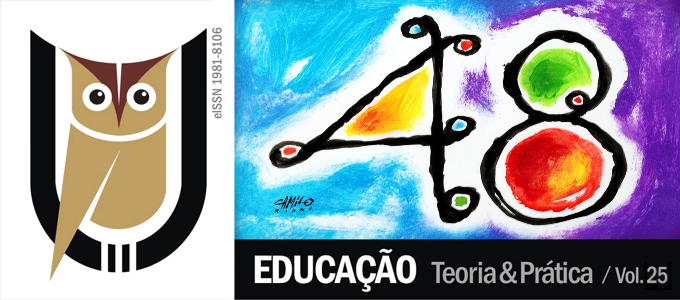Learning evaluation and use of assistive technology resources in students with disabilities
DOI:
https://doi.org/10.18675/1981-8106.vol25.n48.p150-167Keywords:
Evaluation, Action research, Special Education, Assistive Technology.Abstract
In this work, the purpose was thinking the learning evaluation and the use of Assistive Technology resources in students with disabilities. Discusses the inclusion as a challenge, what promote a reorientation in educational issues and the technical and financial support. To do so, intervene with municipal and state network schools in northeastern Brazil, guided by interlocution with the historical-cultural principles and collaborative-critical action research. Five (05) schools were accompanied weekly, where are enrolled students with severe disabilities. From the work with these students was possible to reflect about the procedures used in school, thinking how Assistive Technology resources reach there and what is your importance to ensure an adequate evaluation process. The following results are evident: only official policies are not able to delineate the work in schools, to modify the evaluation process, it is necessary to put them in motion, in discursive practices, in the actions, helping the school to become effectively as inclusion space. In schools there was any kind of adaptation to the evaluation process; students with disabilities did not participate of the evaluation; schools did not know TA resources; students with severe disabilities are not attended in their specificities in schools; the teachers in these schools understand the evaluation as a static and linear process; collaborative work can be an alternative to modify the actions at school. Lastly, the technology can be of service to the school, promoting the learning of these students. Nowadays, the educator must be prepared for the challenge of working in diversity producing new potential.Downloads
Additional Files
Published
How to Cite
Issue
Section
License
Authors who publish in this journal agree to the following terms:
a) Authors assign copyright to the journal, with the work simultaneously licensed under the Creative Commons Attribution License that allows sharing of the work with acknowledgment of authorship and publication in this journal.
b) The policy adopted by the Editorial Committee is to assign copyright only after a period of 30 months from the date of publication of the article. After this time, authors interested in publishing the same text in another work must send a letter to the Editorial Committee requesting the release of the assignment of copyright and wait for a response.
c) This journal provides public access to all its content, since this allows greater visibility and reach of published articles and reviews. For more information on this approach, visit the Public Knowledge Project, a project that developed this system to improve the academic and public quality of research, by distributing OJS as well as other software to support the public access publication system to academic sources. The names and email addresses on this website will be used exclusively for the purposes of the journal and will not be available for other purposes. This journal provides open any other party  This work is licensed under a Creative Commons License
This work is licensed under a Creative Commons License


